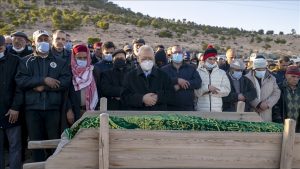By: Jocelyn Anctil
Impunity Watch News Staff Writer
ARUSHA, Tanzania – On October 3, 2024, the African Court on Human and Peoples’ Rights reached a decision on provisional matters in Moadh Kheriji Ghannouchi and Others v. Republic of Tunisia. This case involves several political activists whom the applicants allege have been wrongfully imprisoned without probable cause detained. These activists are members of the Ennahda Party, a major political group in Tunisia aiming for Islamic democracy. Applicants on behalf of the activists allege that during detention these activists were deprived of their right to dignity and protection against cruel punishment. The Court ordered the Republic of Tunisia to better protect the current detainees. By this order, the Republic of Tunisia must eliminate barriers to communication between current detainees and lawyers or medical personnel. They must also adequately inform the detainees of the basis for their detention, and report on any measures taken to fulfil these orders within 15 days of the decision. However, the court dismissed the request for release of the four detainees.
 |
The applicants also allege that the Republic of Tunisia infringed upon a detainee’s right to life although no conclusion on this issue has been reached. Article 4 of the African Charter on Human and Peoples’ Rights and Article 6 of the International Covenant on Civil and Political Rights ensure and protect one’s right to life. Ridha Bouzayene, a well-known member of the Ennahda Party, died during a protest against the Government in the Republic of Tunisia on January 14, 2022. He went missing at the demonstration and five days later it was discovered he had died from injuries inflicted by police.
Mr. Bouzayene’s death also implicates the right of peaceful assembly, protected by Article 11 of the African Charter on Human and Peoples’ Rights and Article 21 of the International Covenant on Civil and Political Rights. Mr. Bouzayene went missing during what the applicants allege to be a peaceful protest and sustained fatal injuries while exercising his rights.
Applicants also allege the Republic of Tunisia discriminated against Mr. Bouzayene based on his political opinion which further violates his rights protected by the African Charter on Human and Peoples’ Rights. The Constitution of Tunisia purports to establish a Constitutional Court, yet the Court has not been operational. As a result, the applicants further allege that the Republic of Tunisia has not upheld the independence of lawyers and the judiciary, leading to the ineffective investigation of Mr. Bouzayene’s death. As of this decision, the Tunisian judicial system has not found anyone responsible for Mr. Bouzayene’s death and the applicants maintain he was arbitrarily deprived of life. The applicants request the Court to order the Republic of Tunisia to open an investigation into Mr. Bouzayene’s death.
The provisional decisions in this case, requiring the Republic of Tunisia to better inform and protect current detainees, may indicate a favorable decision to Mr. Bouzayene’s family in the future regardless of their denial of release.
For Further Information Please See:
ACHPR – Moadh Kheriji Ghannouchi and Others v. Republic of Tunisia – 3 Oct. 2024
UK asked to impose sanctions on Tunisia officials – Middle East Monitor – 22 Mar. 2023